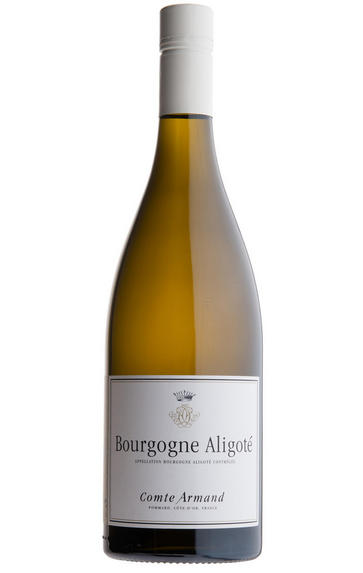
About this WINE
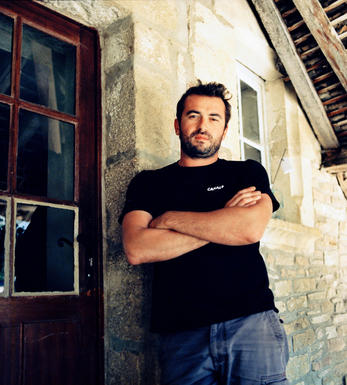
Domaine Comte Armand
Owned by the family of the Comte Armand since 1825, Clos des Epeneaux is among Pommard’s most revered vineyards. Post-phylloxera, it wasn’t replanted until 1930. Further vineyards were acquired in ’94: Auxey-Duresses, Auxey-Duresses Premier Cru, Volnay and Volnay’s Frémiets.
The modern era effectively began with Pascal Marchand, who was succeeded as winemaker by Benjamin Leroux. When Ben left in 2014 to focus on his own business, Paul Zinetti took the reins.
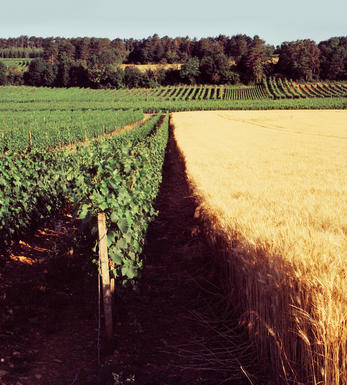
Bourgogne Aligoté
Bourgogne Aligoté is a regional Appellation d’origine contrôlée (AOC) for white wines produced in Burgundy from the Aligoté variety of grape, which dates from 1937.
Aligoté grapes have played a prominent role in white Burgundy production since the 1600s, but are now being phased out in favour of the more popular and profitable Chardonnay grape: in 2007 only 1,700 hectares (4,200 acres) of Aligoté were grown compared to the 12,800 hectares (32,000 acres) of Chardonnay. The AOC regulations permit up to 15% Chardonnay to be blended with the Aligoté.
Bourgogne Aligoté is usually regarded as a somewhat more acidic wine, best enjoyed in its youth due to its lighter nature. It is also a primary component in the production of the popular French cocktail kir, by combining the Aligoté wine with the blackcurrant liqueur crème de cassis.
Aligoté has one appellation exclusive to its grape: Bouzeron, in the Côte Chalonnaise region of Burgundy, where 53 hectares are dedicated to this unique Aligoté based wine.
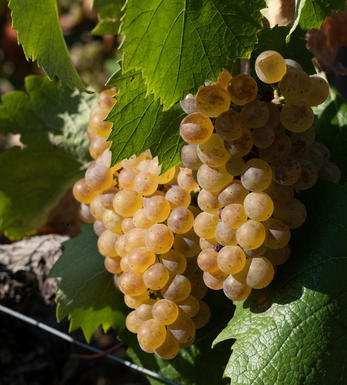
Aligoté
A grape that was first recorded in Burgundy in the 18th century and is still planted almost exclusively there, though there are limited plantings in Bulgaria, Moldavia and even California. It is a moderate-yielding grape that tends to perform best on south-east facing slopes and in warm, dry years.
For your Burgundian vigneron, Aligoté is not nearly as profitable to grow as Chardonnay - consequently it tends to be relegated to lower quality vineyards. In the wrong hands and in the wrong sites it can produce thin, raspingly acidic wines that are remarkably undistinguished. However the best growers produce balanced examples with nutty and citrus hints which are most appealing to drink. The best Aligoté wines traditionally come from Bouzeron in the Côte Chalonnaise. Along with blackcurrant liqueur, it is the key ingredient of Kir.


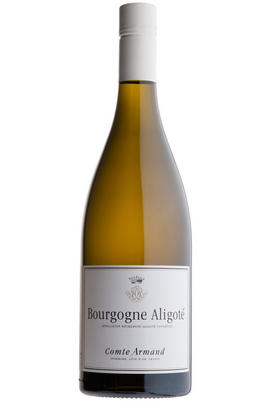
Buying options
Add to wishlist
Description
This is mostly from 90-year-old vines of Aligoté Doré in Meursault, and a younger vineyard in Volnay; there was no lees contact this year, and it was aged in large 600-litre barrels – of which there are only three this year. The domaine ’s total yield of Chardonnay was only four buckets of grapes, so that’s in here this year too. Doré is rather on trend at the moment, even if it is unclear whether it is a separate strain from Aligoté Vert. There is always a wonderful beeswax texture to this wine and an almost verbena top note. Distinctive, delicious and, this year, quite rare. Drink 2018-2020.
Adam Bruntlett, Burgundy Buyer
The family of the Comte Armand has owned the vineyard of Clos des Epeneaux in Pommard since 1826. The vineyard wasn’t replanted post-phylloxera until 1930, but has since confirmed its rating as one of Pommard’s very finest sites. The modern era began under Pascal Marchand followed by Benjamin Leroux and, from 2014, Paul Zinetti, Benjamin’s second-in-command. Further vineyards were acquired in 1994: Auxey-Duresses, Auxey-Duresses Premier Cru, Volnay and Volnay Frémiets. The 2016 harvest is Paul Zinetti’s third after succeeding Ben Leroux, and a subtle but discernible change is under way. The Clos des Epeneaux’s famous dense, rich, tannic composition, so individual and impressive, is being gently moderated towards a wine that will be accessible a little earlier, while in no way undermining the ageability of one of Burgundy’s great terroirs . The firmest tannins are less evident after only gentle pumping-over and a very limited number of punch- downs. A new de-stemming machine is also delivering much better quality whole berries. This is a vintage which reveals a whole new, sunnier and accommodating aspect of the Clos’s character.
wine at a glance
Delivery and quality guarantee